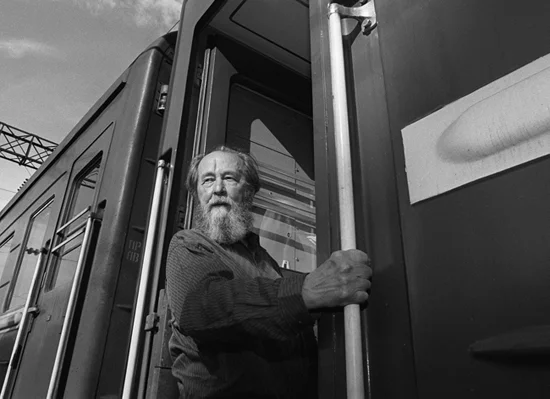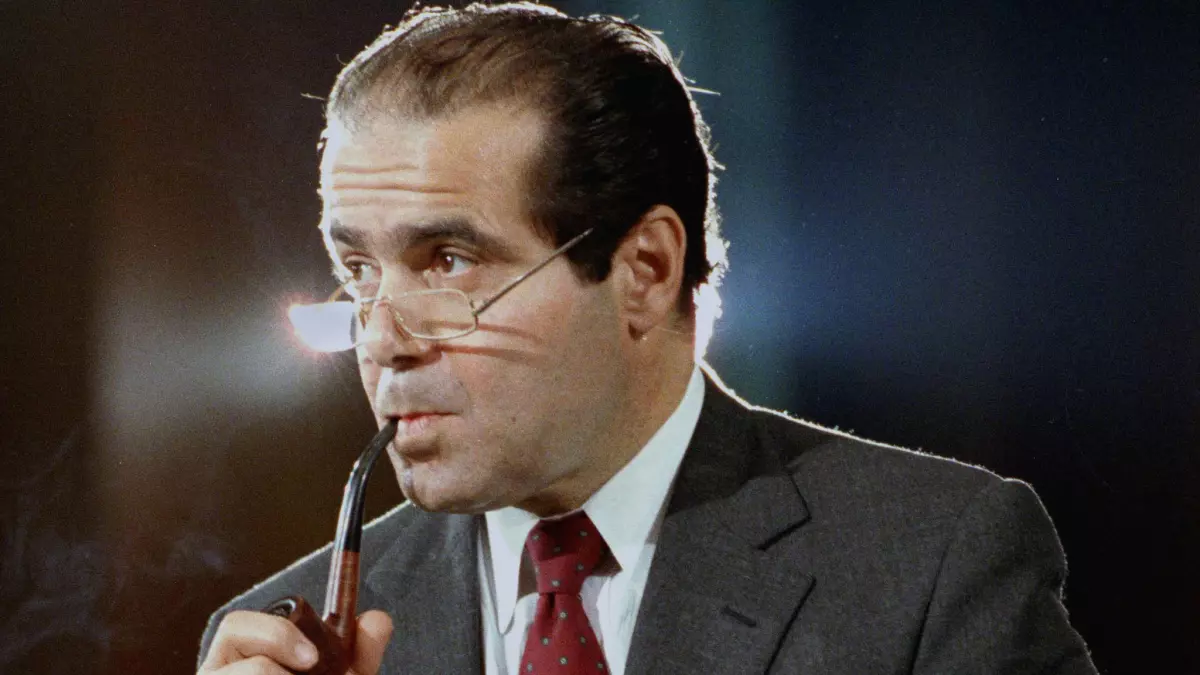
China’s Engineers, America’s Lawyers, and the Hearts of Men
China has rapidly advanced in nearly every category required to be a superpower in this century.
Shortly after Nixon’s famous visit to China, our two countries began a fast and deep economic integration. Between 1980 and 2004, trade between the U.S. and China rose from $5 billion annually to over $231 billion a year. In 2006, China became the second largest American trading partner, trailing only Mexico. When the 2008 Beijing Olympics opened, an era of good feelings seemed to be on the horizon. I traveled across China that summer as a college student on a study abroad trip. Family members at home were mesmerized by stories of the Forbidden City and pictures of the Great Wall. Chinese among the coastal elite welcomed our group with warmth and curiosity about American culture. Our hosts in more remote places, from Kunming to Xi’an, spoke openly about their admiration for the United States.
As Americans learned over the past decade, the more prosperous China has become, the more aggressive it has become on the world stage. Xi Jinping consolidated power more than any party leader since Mao. At the same time, China has rapidly advanced in nearly every category required to be a superpower in this century.
Even though China’s rise has become impossible to ignore, Americans have not sufficiently understood our emergent rival. Dan Wang’s Breakneck: China’s Quest to Engineer the Future admirably steps into this void. Wang was born in Yunnan, a Chinese province in the country’s mountainous southwest. As a child, Wang moved with his family to Canada before settling in Philadelphia for his high school years. As an adult, Wang returned to China to work as a tech analyst and journalist. This period covered several years before the initial Covid outbreak and extended until 2023. This unusual combination of experience and fortuitous timing has enabled Wang to gain a deeper understanding of both China and the United States. He is especially adroit at using China to better understand the United States and vice versa. His deft account is indispensable not only for Americans interested in foreign policy, but also for those who are concerned about the direction of their own country.
Engineers and Lawyers
Wang’s starting heuristic is that the United States is a nation of lawyers, while China is a nation of engineers. He means this in two ways. First, he notes that the highest-ranking political officials in China are always engineers. In the United States, he notes, almost all presidential and vice presidential nominees have attended law school. Engineers are excellent at building, but not creative enough to meet the complexity of social problems, in Wang’s telling. Lawyers, on the other hand, are obsessed with process. Wang cites the decline of new construction. in the United States over the past few decades as a chief piece of evidence. He puts the distinction this way:
Lawyers have so many tools available to delay or prevent building. You don’t just feel the difference going from the lawyerly society to the engineering state: You saunter, treat, and amble upon its works. Americans no longer manufacture well or build public works on reasonable timelines.
As the book begins, this critique seems interesting but not particularly deep. Manufacturing jobs have declined in America over the last five decades (a datapoint that is true in most western countries) but the manufacturing sector in this country remains one of the most productive of such sectors globally. By the end of the work, though, Wang argues with a forcefulness and specificity that will challenge the way Americans think about their own system.
It is difficult, I confess, to pry American political institutions out of the grip of law schools…The United States will not overcome the lawyerly society by debating the kinds of issues that law students thrill to: the correct ruling on any particular case or the personalities on the Supreme Court.
Wang is not merely assailing one of America’s most storied and most sensitive professions. His point is that the American experiment is too important to be left to a culture created by a specialized class of legal thinkers. The weight that the “lawyerly society” placed not only on the American economy, but on the American spirit is a recipe for failure, Wang argues. “I want Americans to experience what previous generations of Chinese have felt: a sense of optimism about the future driven in large part by physical dynamism.”
Since this book is mostly about China, Wang dedicates only a small portion of his writing to analyzing what the lawyerly society looks like, in practice. He does, though, point to his biggest concerns. He sees “two pathologies” at work today. The first is the “elevation of process over outcome” and the second is that “the lawyerly society has a systematic bias toward the well-off.” He grants that a commitment to the process is a key pillar of the rule of law. He also grants that many of the problems caused by excessive lawyering come from problems within the administrative state. California’s byzantine structure of environmental laws, permitting regulations, and cultural acceptance of bureaucratic sludge are Wang’s prime example of a political culture gone awry.
Rather than thinking of the problem as one primarily rooted in either the public or private sectors, Wang sees an interplay between the two at work. The better funded a person, company, or homeowners association is, the more it can leverage the burdensome regulatory environment to its own ends. Most often, this means defeating new construction projects midstream or deterring builders altogether. That Wang’s solutions are incomplete and sometimes vague is a feature, not a bug. Not only does he want to focus mostly on China, but he is writing with a tension in his own thinking. On the one hand, processes and lawyers are needed for a society to live within the rule of law. On the other hand, this system often works to the detriment of the American consumer and the country’s economic trajectory.
The Party is Smarter Than You
Even as Wang wants to nudge Americans to care more about building in the physical world, he levels a devastating critique of what engineering culture does when applied to politics. China’s political leaders are driven by “paranoia, doing everything they can to control the future.” China’s ruling elite is so captivated by their vision of the world that they have become social engineers, who believe they possess the power to remake society. Wang’s two most compelling examples here are his chapters on the One Child policy and Zero Covid.
In 1980, Deng Xiaoping adopted an idea from Song Jian, a high-ranking Chinese official and missile engineer. The infamous One Child policy was created and marketed as a simple technocratic solution to the perceived problem of future overpopulation. Writing about Song’s arguments (that China was growing too quickly and needed to curtail its population quickly), Wang is incisive.
Today, these propositions read as bunk, not that such dehumanizing ideas could ever be acceptable in China or any country. Everything about them was flawed. Song wrote, “China’s population by the second half of the next century would go up to 4.5 billion, equalling the total world population today.” Only an engineer, if not a central planner, might have believed in this sort of straight-line analysis. Ironically, this mechanistic thinking rendered Song a poor cybernetician because his model failed to respond dynamically to feedback.
Wang correctly notes that the arrogance of applying this sort of engineering to a social issue as intimate and universal as childbearing was bound to result in great evil. The party carried out forced sterilizations and abortions, particularly in rural areas. Women in cities had to submit “up to twelve documents from her workplace and various party officials and a consent form agreeing to contraceptive measures after birth”. The state managed to increase abortions by nearly 300 percent and sterilizations by 500 percent in the first few years of the One Child program. Women were sometimes taken from their homes and held captive until they agreed to undergo abortions. At other times, party officials assembled crowds to harass pregnant women in public.
The most jarring (yet, sadly, representative) example Wang cites comes from Guan County in Shandong province. Local party leader Zeng Zhaoqi achieved the infamy of becoming China’s technocratic Herod when he mandated that there be no births between May 1 and August 10 in a given year. The episode became known as “the slaughter of the lambs” and ended with Zeng’s promotion to a more prestigious post. Wang’s work in this chapter shows the way that the desire to engineer human society can easily lead to a moral abyss, hiding in the plainclothes of bureaucratic efficiency.
Wang’s book is excellent for the helpful light it sheds on China for a mostly unaware American audience. Wang makes a compelling case for the United States to refocus its attention on improving its physical infrastucture. We need this course correction for both our economic prosperity and our physical security. Wang is right on these points, and he makes the case well.
If there is one area where Breakneck is lacking, it is in Wang’s conclusion. Though I heartily agree with his exhortation that “Americans have to trust that society can flourish without empowering lawyers to micromanage everything,” Wang’s analysis points to, but doesn’t consider, the true gaping hole in American society. We need to build better, yes, but we need an intellectual renaissance that will guide and deepen our free society.
We need moral (and, likely, religious) revival. We need to address and reform our education systems. The only future in which new American infrastructure matters for liberty is one in which the United States has recommitted to real education that produces a literate, morally sensitive, and patriotic citizenry. We can consult Aristotle and Cicero on this point. We can read John Adams or Abraham Lincoln. Entrepreneurship can be successful without political liberty in certain cases. China has demonstrated this to a certain extent over the last two decades, despite its renewed push for centralization under Xi Jinping, which has led to a mismanaged economy.
The United States, along with the western political tradition it best embodies, is about more than just money. It’s also about creating and safeguarding a space for a political community that sets aside the Libido Dominandi in favor of recognizing the Imago Dei. We need new highways, yes. We certainly need a bigger navy, and we could use it quickly. More deeply, though, we need Alexis de Tocqueville and Reinhold Niebuhr. We need widespread biblical literacy. We must deeply instill the ideals of the best of American civilization in the minds and hearts of young Americans today and in the future.
John Kitch II is Assistant Professor of Instruction and Assistant Director of Academic Experience in the School of Civic Leadership at The University of Texas.
Politics

National Civitas Institute Poll: Americans are Anxious and Frustrated, Creating a Challenging Environment for Leaders
The poll reveals a deeply pessimistic American electorate, with a majority convinced the nation is on the wrong track.
.webp)
Liberal Democracy Reexamined: Leo Strauss on Alexis de Tocqueville
This article explores Leo Strauss’s thoughts on Alexis de Tocqueville in his 1954 “Natural Right” course transcript.
%20(1).avif)
Long Distance Migration as a Two-Step Sorting Process: The Resettlement of Californians in Texas
Here we press the question of whether the well-documented stream of migrants relocating from California to Texas has been sufficient to alter the political complexion of the destination state.
%20(3).avif)
Who's That Knocking? A Study of the Strategic Choices Facing Large-Scale Grassroots Canvassing Efforts
Although there is a consensus that personalized forms of campaign outreach are more likely to be effective at either mobilizing or even persuading voters, there remains uncertainty about how campaigns should implement get-out-the-vote (GOTV) programs, especially at a truly expansive scale.

There's a Perception Gap With the U.S. Economy
As we approach another election cycle, it’s worth asking: what’s real, what’s political theater, and what does it all mean if Democrats regain control of the House?

International Law Is Holding Democracies Back
The United States should use this moment to argue for a different approach to the rules of war.
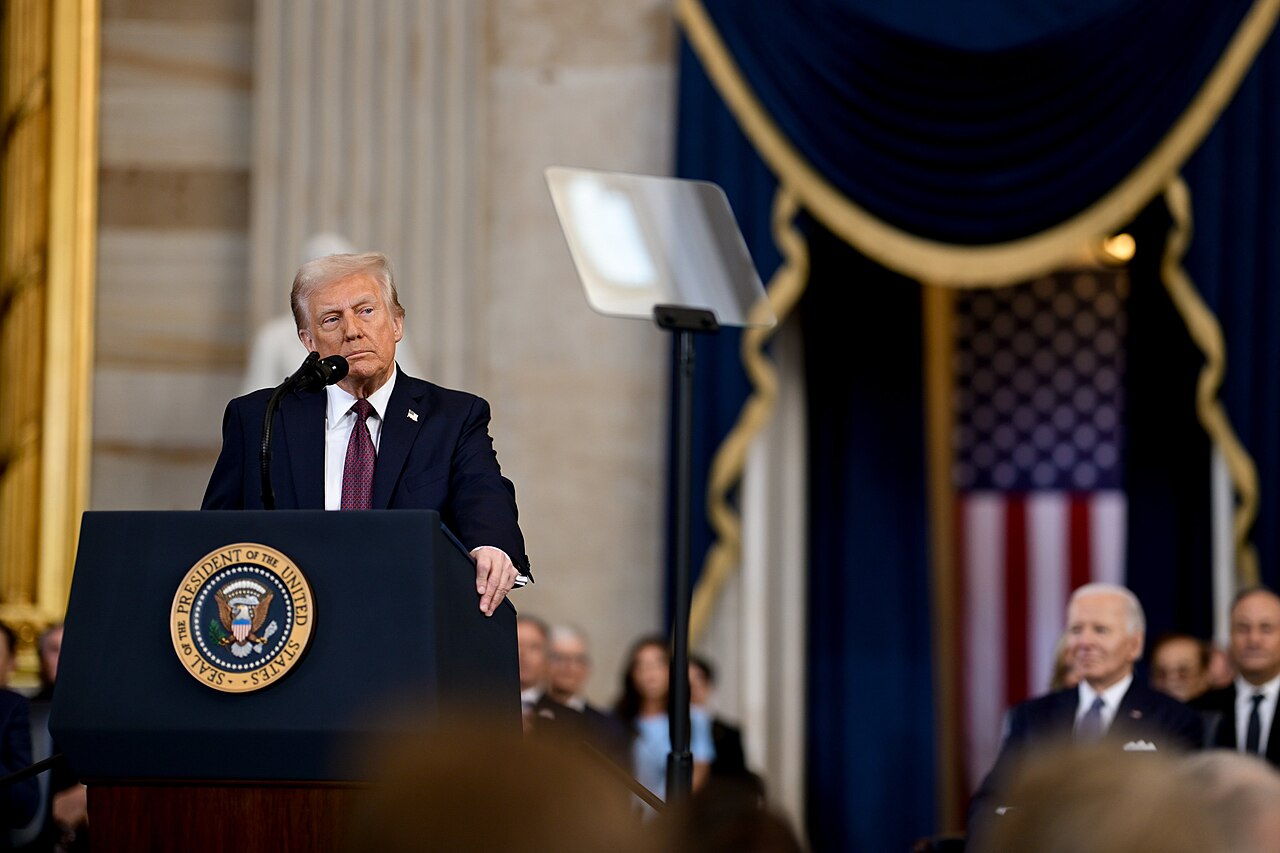
Trump purged America’s Leftist toxins. Now hubris will be his downfall
From ending DEI madness and net zero to securing the border, he’ll leave the US stronger. But his excesses are inciting a Left-wing backlash
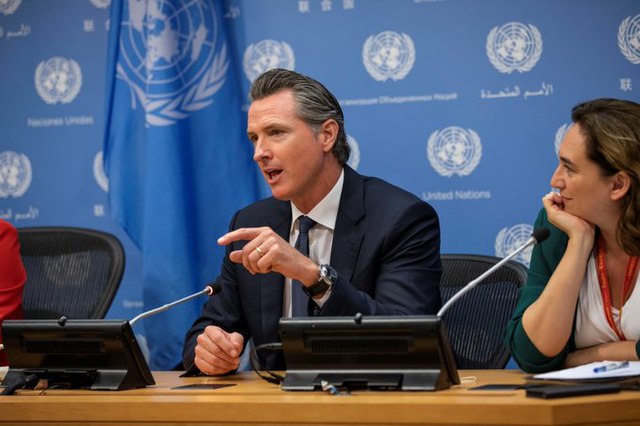
California’s wealth tax tests the limits of progressive politics
Until the country finds a way to convince the average American that extreme wealth does not come at their expense, both the oligarchs and the heavily Democratic professional classes risk experiencing serious tax raids unseen for decades.
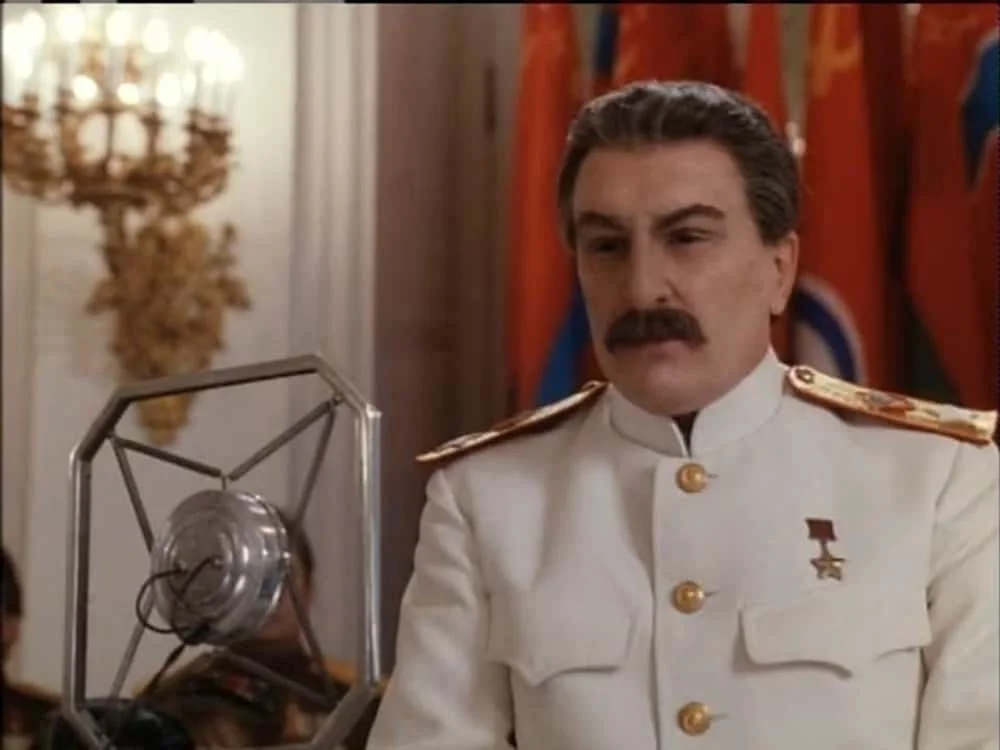
When Duvall Played Stalin
It’s strange to compliment an actor for impersonating a tyrant, but it is an act of courage.
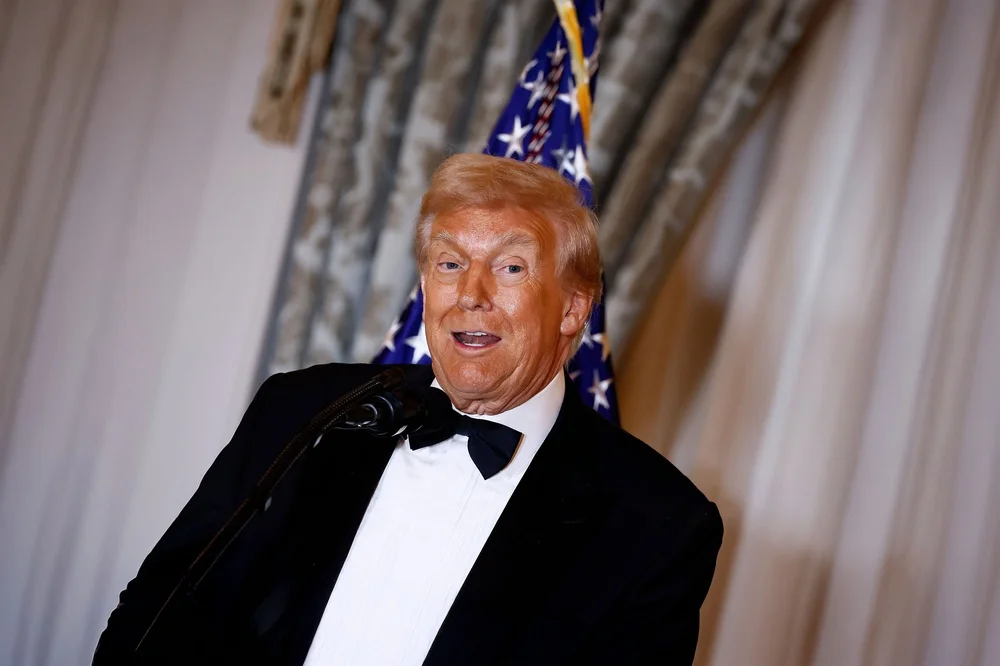
When Vanity Leads to Impropriety
A president should simply not be allowed to name anything after himself without checks from Congress or an independent commission.








